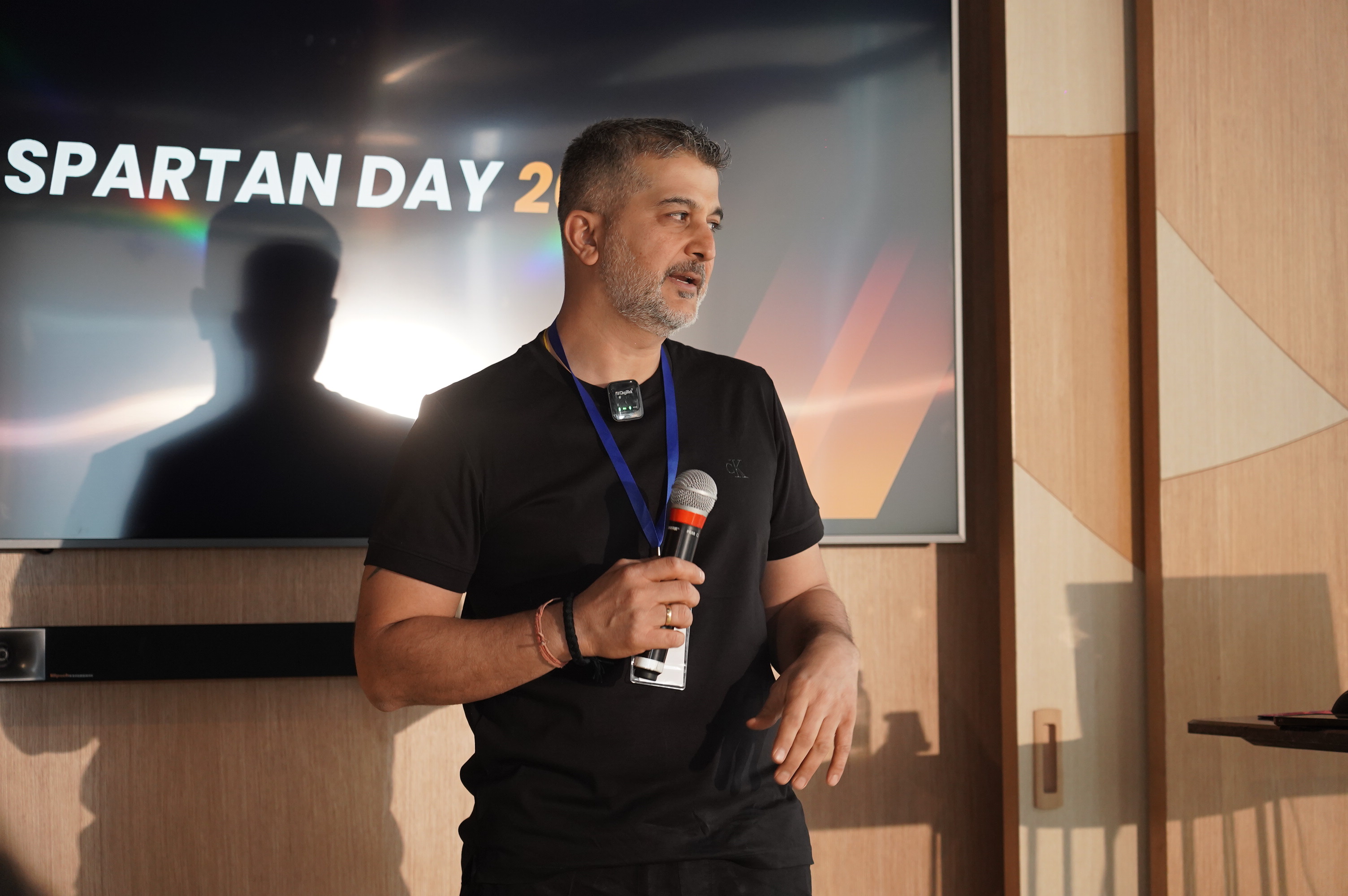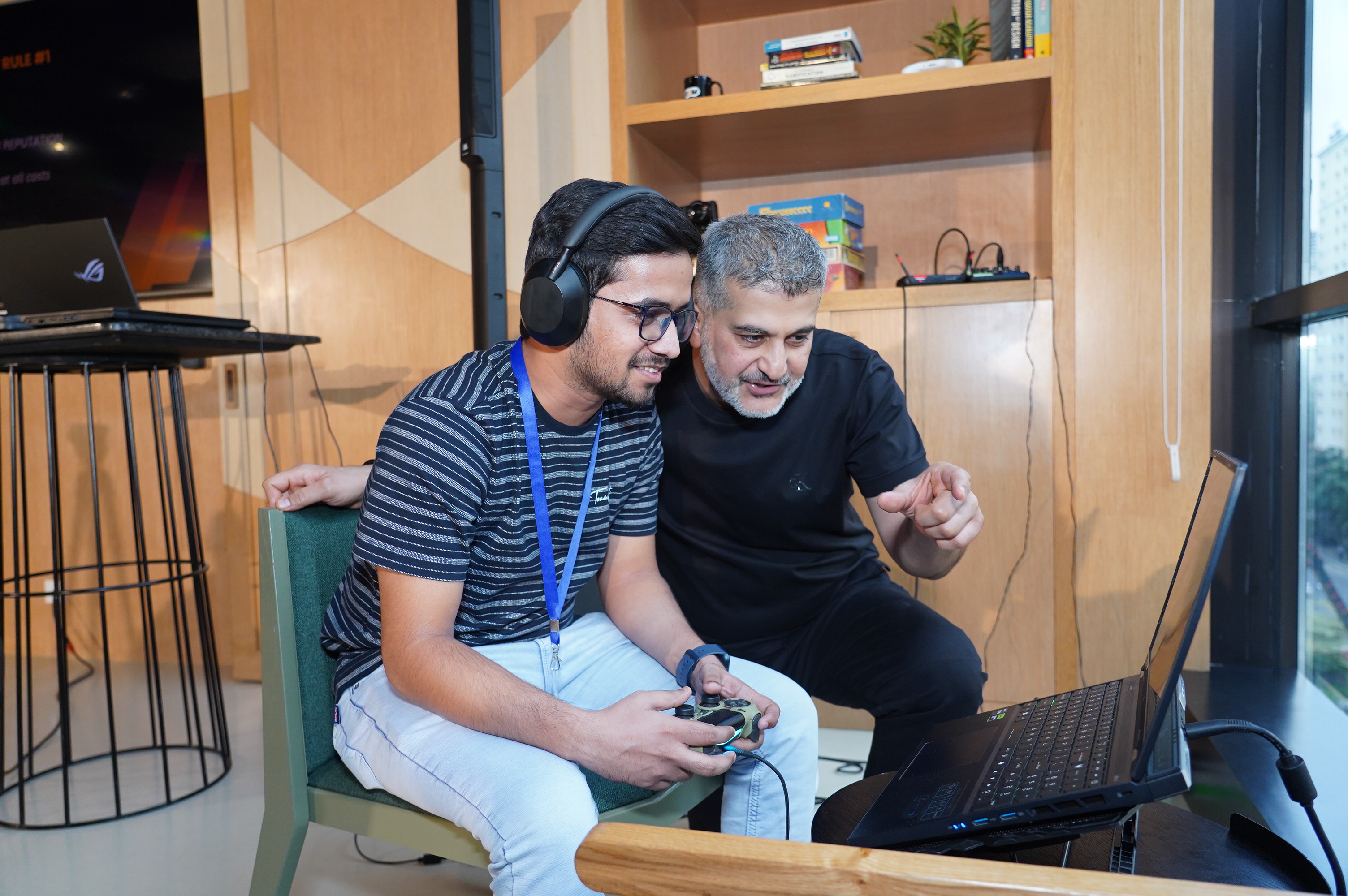
How to Choose the Right Game Development Course in India (And What to Avoid)
Aug 20, 2025
Every year in India, thousands of students join “game development courses” with stars in their eyes. They dream of building the next GTA or PUBG. They pay anywhere between ₹3–6 lakhs in fees.
Fast forward 12–18 months…
- No real industry skills.
- A thin portfolio that wouldn’t impress even a hobbyist.
- Zero job offers.
Instead of building games, they’ve spent months watching theory-heavy lectures and doing random assignments. The only thing that’s “developed” is their debt.
If this sounds harsh, it’s because you need to hear it before you waste lakhs.

2. Why Most Gaming Courses in India Miss the Mark
Let’s get one thing clear: a fancy website with glossy graphics and a photo of a random guy wearing headphones is not proof that a course will make you a game developer.
They sell a dream they can’t deliver. Period.
Here’s what they do:
- Copy a Western curriculum without understanding the local industry.
- Hire “faculty” who’ve never shipped a game.
- Fill the brochure with jargon and pretty pictures.
I’ll give you a real example. We had a student (let’s call him Rohan) who joined a “premium” game design course in Mumbai. One year later, his “final project” was… a PowerPoint presentation. Not a game. Not even a playable prototype. Just slides. After joining Gamer2Maker, he built a fully playable 3D platformer within six months with a team. Studios wanted to see it. That’s the difference.
The Harsh Reality of Missing Ingredients
- Real industry instructor? If your instructor has never shipped a game, you’re not learning game development. You’re watching YouTube with a tuition fee.
- Team projects? If you’re not making games with a group, under deadlines, solving real problems, you’re not preparing for the industry. You’re preparing for a group study session before an exam.
- Career assistance? Some institutes will “help you” by forwarding your resume to random companies. If that’s career guidance, then my cousin forwarding memes is also “industry networking.”
- Portfolio support? If your portfolio looks like a college art project, studios won’t even call you back. Fact.
Sadly, most students only realise this after they’ve spent ₹3–6 lakhs. That’s the moment you hear them say: “The only game they built was in their brochure...”
3. Red Flags vs Green Flags: How to Spot a Real Game Development Course
Red Flag: The instructor is an animation/VFX expert who has never worked with Unity or Unreal.
Green Flag: The instructor has shipped multiple games on actual platforms and understands what hiring managers look for.
Red Flag: Your “projects” are solo assignments you submit online.
Green Flag: You’re building complete games in teams, under deadlines, just like in a real studio.
Red Flag: Portfolio is a folder of screenshots.
Green Flag: Portfolio has playable builds, videos of gameplay, and GitHub repos -the stuff studios check.
Red Flag: Career support = one mock interview.
Green Flag: Ongoing mentorship, resume optimisation, LinkedIn branding, and actual job connections.
Red Flag: No accreditation.
Green Flag: Recognised certification that holds weight in India and abroad.
If you’re reading this and ticking more red flags than green ones… well, you already know what that means.
4. What Makes Gamer2Maker Different (Problem → Solution)
We built Gamer2Maker because we were tired of seeing students waste money on courses that couldn’t even teach them how to create a basic, playable level.
Here’s what we do differently:
Active Industry Mentors → You Learn What Works Now
Every instructor at G2M is a working game developer. This means you’re learning skills that studios want today, not theory from 2010.
Mandatory Team Projects → Real Studio Experience
You will work with a team to build full games from scratch. Deadlines, problem-solving, and even creative disagreements -just like in a real studio. By the end, you’ll have multiple playable games in your portfolio.
Portfolio & Career Support → Jobs, Not Just Certificates
We help you create a portfolio that grabs attention. Playable builds, technical breakdowns, and personal branding -the things hiring managers look for.
Accredited Certification & Degree→ Doors Open Abroad
G2M offers certification and degree programs in collaboration with Medhavi Skills University - India's first Skills University to offer Industry Immersive degree programmes within the holistic development framework of NEP2020. This matters when applying for jobs abroad or further studies.
Student Voices:
“Before joining, I was just a gamer. Now I’ve built two full games and have interview calls from studios in India and abroad.” -Pranav, G2M Alumni
“In my previous course, we were learning animation basics for 6 months. At G2M, in the first month, I was already making a prototype.” -Neha, G2M Alumni
5. Bonus Masterclasses: The Edge You Didn’t Know You Needed
Other courses stop at “how to make a game.” We prepare you for how to succeed in the industry:
- Mobile Free-to-Play Game Design: Learn how top mobile games make money and keep players hooked.
- Git 101: Because studios expect you to know version control, not just “save as.”
- 2D Animation in Spine: Industry-standard skill for indie and mobile devs.
- Pixel Art for Games: Because sometimes, the retro style gets you hired faster than a 3D render.
These aren’t “extras” -they’re the secret weapons that make studios go, “Oh, you know that? Great, we need you.”
6. The Risk of Choosing Wrong
Let’s paint two pictures.
Future #1: You choose the wrong course. A year later, you have no playable games, no contacts in the industry, and you’re googling “how to get a job in gaming” while your batchmates from better programs are getting hired.
Future #2: You choose Gamer2Maker. A year later, you have a proper playable game in your portfolio, mentors you can WhatsApp before interviews, and actual job offers.
Without the right skills, you’ll be left watching others get hired while you’re still stuck in “learning mode.”
Gamer2Maker isn’t for everyone. We don’t accept every applicant. If we think you’re not ready, we’ll tell you -because we value results over enrolments.
If you’re serious about becoming a game developer, ready to work hard, and want real mentors guiding you every step, then apply. This could be the decision that turns “someday” into “right now.”
[Apply for Gamer2Maker Now -Your First Game Won’t Build Itself]
8. FAQs
Which course is best for gaming?
The best course for gaming is one that’s hands-on, mentor-led, and focused on building real games, not just theory. Look for industry-experienced instructors, team projects, and strong portfolio support. Courses like Gamer2Maker’s game development courses preparing you with practical skills studios hire for.
Can gaming be a career in India?
Yes, gaming can be a career in India. The industry is growing fast, with opportunities in game design, development, animation, esports, and more. Skilled professionals are in demand, and with the right training and portfolio, you can work with top studios in India or even globally.
What is the salary of AAA game developers in India?
A senior or lead AAA game developer typically earns between ₹15 lakh to ₹30 lakh per annum in major studios like Ubisoft or Rockstar, often with added perks like bonuses or stock options



